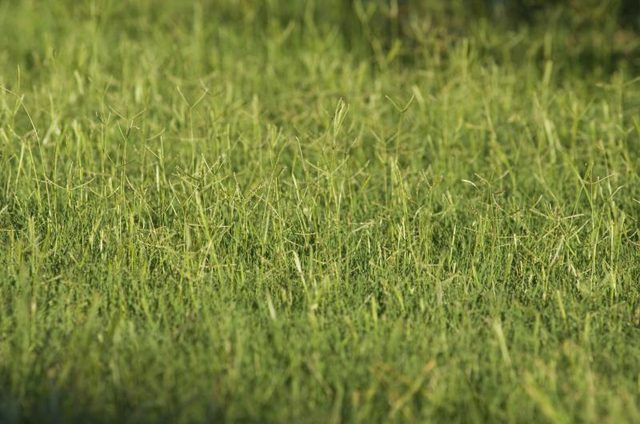Bulbs
Flower Basics
Flower Beds & Specialty Gardens
Flower Garden
Garden Furniture
Garden Gnomes
Garden Seeds
Garden Sheds
Garden Statues
Garden Tools & Supplies
Gardening Basics
Green & Organic
Groundcovers & Vines
Growing Annuals
Growing Basil
Growing Beans
Growing Berries
Growing Blueberries
Growing Cactus
Growing Corn
Growing Cotton
Growing Edibles
Growing Flowers
Growing Garlic
Growing Grapes
Growing Grass
Growing Herbs
Growing Jasmine
Growing Mint
Growing Mushrooms
Orchids
Growing Peanuts
Growing Perennials
Growing Plants
Growing Rosemary
Growing Roses
Growing Strawberries
Growing Sunflowers
Growing Thyme
Growing Tomatoes
Growing Tulips
Growing Vegetables
Herb Basics
Herb Garden
Indoor Growing
Landscaping Basics
Landscaping Patios
Landscaping Plants
Landscaping Shrubs
Landscaping Trees
Landscaping Walks & Pathways
Lawn Basics
Lawn Maintenance
Lawn Mowers
Lawn Ornaments
Lawn Planting
Lawn Tools
Outdoor Growing
Overall Landscape Planning
Pests, Weeds & Problems
Plant Basics
Rock Garden
Rose Garden
Shrubs
Soil
Specialty Gardens
Trees
Vegetable Garden
Yard Maintenance
Weedkillers for Bermuda Grass
Weedkillers for Bermuda Grass. Both a lawn grass and an invasive weed, Bermuda grass (Cynodon dactylon) is classified as a warm-season perennial grass, and it grows in U.S. Department of Agriculture plant hardiness zones 7 through 10. It spreads though rhizomes and stolons -- modified stems that grow horizontally below ground and along the soil...

Both a lawn grass and an invasive weed, Bermuda grass (Cynodon dactylon) is classified as a warm-season perennial grass, and it grows in U.S. Department of Agriculture plant hardiness zones 7 through 10. It spreads though rhizomes and stolons -- modified stems that grow horizontally below ground and along the soil surface. Weedkillers control weeds in a Bermuda grass lawn and Bermuda grass that invades turf, garden borders and other areas of the yard.
Weed Seeds
Pre-emergent weedkillers control weed seedlings in a Bermuda grass lawn. Applied in spring and fall, pre-emergent herbicides create a chemical barrier on the soil's surface that controls crabgrass (Digitaria sanguinalis) and other annual weed seedlings. Apply a 1.71 percent pendimethalin product at a rate of 2 pounds per 1,000 square feet in early spring. If no rain is forecast for the next 48 hours, water the lawn, applying 1/2 inch of water. Apply the pre-emergent herbicide again in early fall to prevent cool-season annual weeds, such as chickweed (Stellaria media) and henbit (Lamium amplexicaule). Don't apply pre-emergent herbicides to newly seeded lawns because they damage grass seedlings.
Established Weeds
When you see weeds in a Bermuda grass lawn, a postemergent weedkiller can kill them without killing the lawn grass. Apply a ready-to-use product containing 7.59 percent 2,4-D, 1.83 percent mecoprop-p and 0.84 percent dicamba when weeds are actively growing, but no more often than twice a year. On a dry, still day when temperatures won't exceed 90 degrees Fahrenheit, water the lawn if it hasn't rained in the previous 24 hours, and put on long pants, a long-sleeved shirt, gloves and safety goggles before applying the product at a rate of 4 fluid ounces per 1,000 square feet, or according to the manufacturer's instructions. Postemergent herbicides can damage Bermuda grass shorter than 2 inches.
Bermuda Grass Control
Selective weedkillers control Bermuda grass in garden borders. When Bermuda grass invades garden beds, it can choke out other plants, but herbicides that target grass control Bermuda grass without harming desired plants. Put on protective clothing and apply a product that contains 0.48 percent fluazifop-p-butyl in early spring before the Bermuda grass is 6 inches long. On a dry still day, spray the product lightly at the center of the Bermuda grass plants, and spray them again after seven days and before the grass regrows to 6 inches. Don't spray the product near ornamental grasses. Spread a 2- to 3-inch layer of garden compost or another mulch after the Bermuda grass has withered to prevent its seeds from sprouting.
Bermuda Grass in Lawns
Bermuda grass in a lawn is difficult to control, but may respond to some weedkiller treatments. When Bermuda grass invades other lawn grasses chemical options are limited because herbicides that kill the Bermuda grass will also kill desirable lawn grasses. The pre-emergent weedkiller pendimethalin prevents Bermuda grass seeds sprouting in established lawns, and glyphosate controls patches of Bermuda grass. Protect other areas of the lawn with cardboard sheets, put on protective clothing, and spray a 2 percent ready-to-use glyphosate product on the Bermuda grass patch on a dry, still day when the grass is actively growing, or apply the product according to the manufacturer's instructions. Alternatively, to treat a small patch of Bermuda grass, dip an old paintbrush in the glyphosate product and paint Bermuda grass stems and blades, taking care not to touch it on the other grasses.